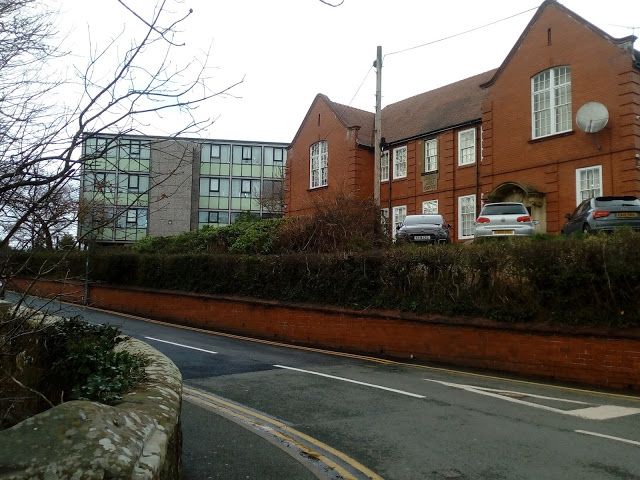* North Wales Police and Crime Commissioner Andy Dunbobbin with Chief Inspector Jon Aspinall and one of the drones.
A new police drone team has been hailed as “highflying heroes” after saving three lives and playing a key role in putting out a major gorse fire.
The praise came from tech
savvy North Wales Police and Crime Commissioner Andy Dunbobbin who is keen to
expand the unit.
Mr Dunbobbin was briefed on
their successes by Chief Inspector Jon Aspinall who leads the dedicated team
which includes a sergeant and four constables and was established in April this
year.
He also showed Mr Dunbobbin
dramatic footage of how the team played a vital part in tackling a huge fire on
Llantysilio mountain near Llangollen in early June, alongside 11 crews from the
North Wales Fire and Rescue Service.
A drone was used to identify hotspots on the
mountain so that a helicopter from Natural Resources Wales could drop water on
them.
Days later the team located
a missing pensioner, Roy Giblin, 82, from Abergele, in a patch of long grass
near the town’s train station. His grateful family said that without the
assistance of the drone “he didn’t stand a chance”.
Rescuers had "little doubt" the drone unit
saved the life of another elderly man, Robert Davies, 86, from Morfa
Bychan, in Gwynedd, who had gone missing in July.
After a major multi-agency
search, he was located by the police drone, hidden from view in tall shrubbery
on a hillside above the village and flown to safety by helicopter.
The third life-saving
incident came when a man fell down a steep drop at a quarry in Denbigh and
landed on a ledge.
Chief Inspector Aspinall said: “He had a severe
head injury and I would say that was a situation where our drone flight saved
his life because he might not otherwise have been found.
“In addition to finding missing people, the drones
are used for a range of different police work including catching criminals
fleeing from vehicles or houses, or people who have been involved in domestic
abuse and fled the scene. There’s countless examples of the good work that
they’re doing.
“They are incredibly versatile and
essentially they have revolutionised policing. It’s enabling us to do things we
were not able to do before.
“The fact that the Police and Crime Commissioner is
keen on technology in general and drones in particular is music to our ears.”
The drones were deployed more than 350 times in the
first three months after going operational.
The squadron includes two wet weather drones that
can operate when it’s raining heavily and in winds of up to 35 miles an hours.
As well as having a thermal imaging capacity, the
high powered video cameras have a 200x zoom enabling the pilot to tell the time
on someone’s wrist watch from high in the sky.
The drones also have a geo-location facility so if
the pilot presses a button, it can give officers on the ground the exact
longitude and latitude.
If the battery is running low, the drone will
automatically return itself to where it took off.
As
well as being responsible for how North Wales is policed Mr Dunbobbin is
playing a key role in using technology, including drones, to fight crime across
the UK.
The Association of Police and Crime Commissioners have elected him as their deputy lead for police technology and digital and deputy lead for economic and cybercrime, including fraud.
Fellow commissioners decided he was the perfect
person for the job because of his background working in the technology
industry.
Mr Dunbobbin said: “The
drones are incredibly effective and versatile, and I’ve had conversations with
the Chief Constable about how the drone team can move forward and what can be
done there.
“I made a pledge in my
manifesto that we would make best use of the technology that’s available to us
and this is what’s happening here.
“The introduction of drones has made a significant difference and at least three lives have been saved already. That’s just priceless.”










